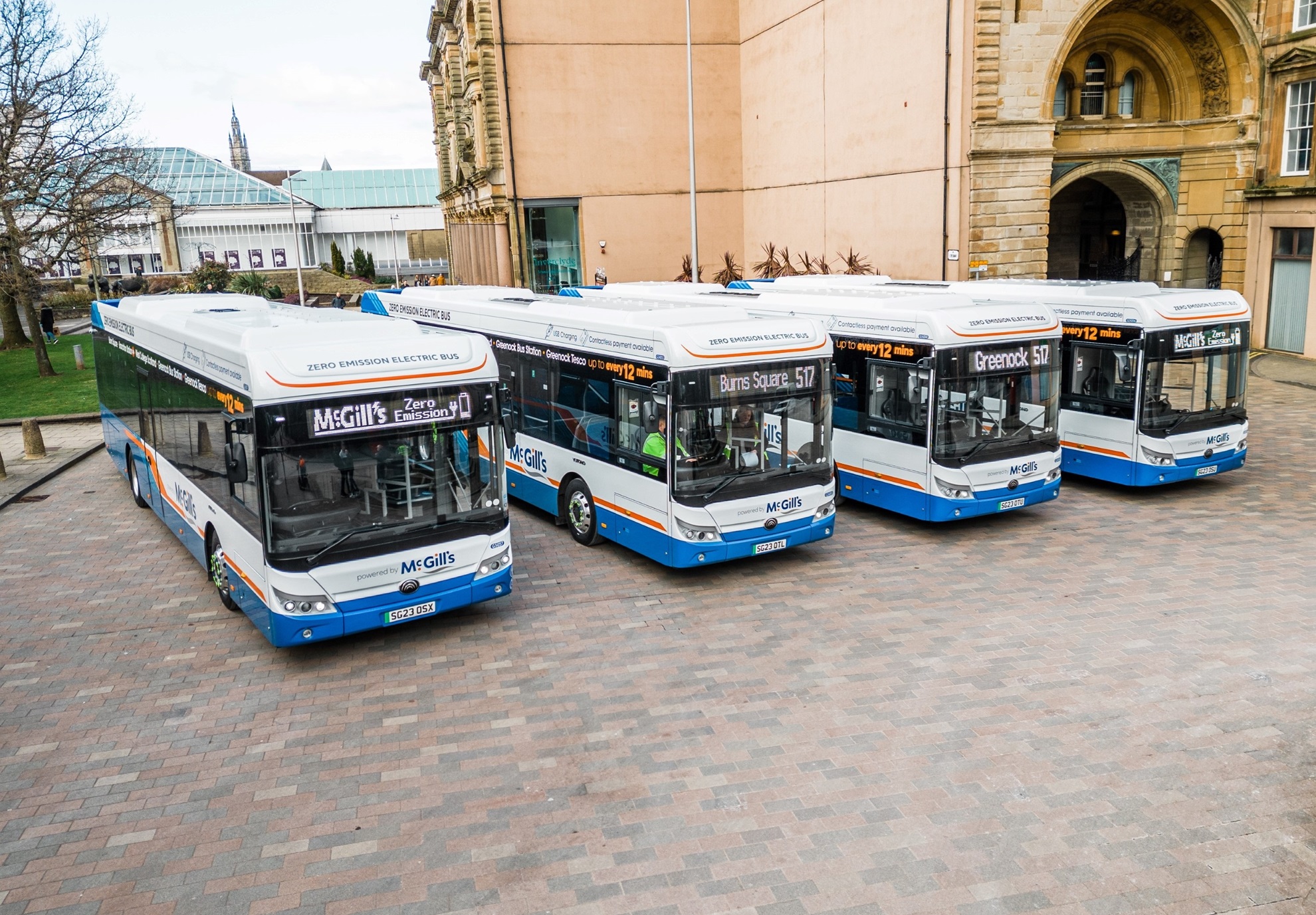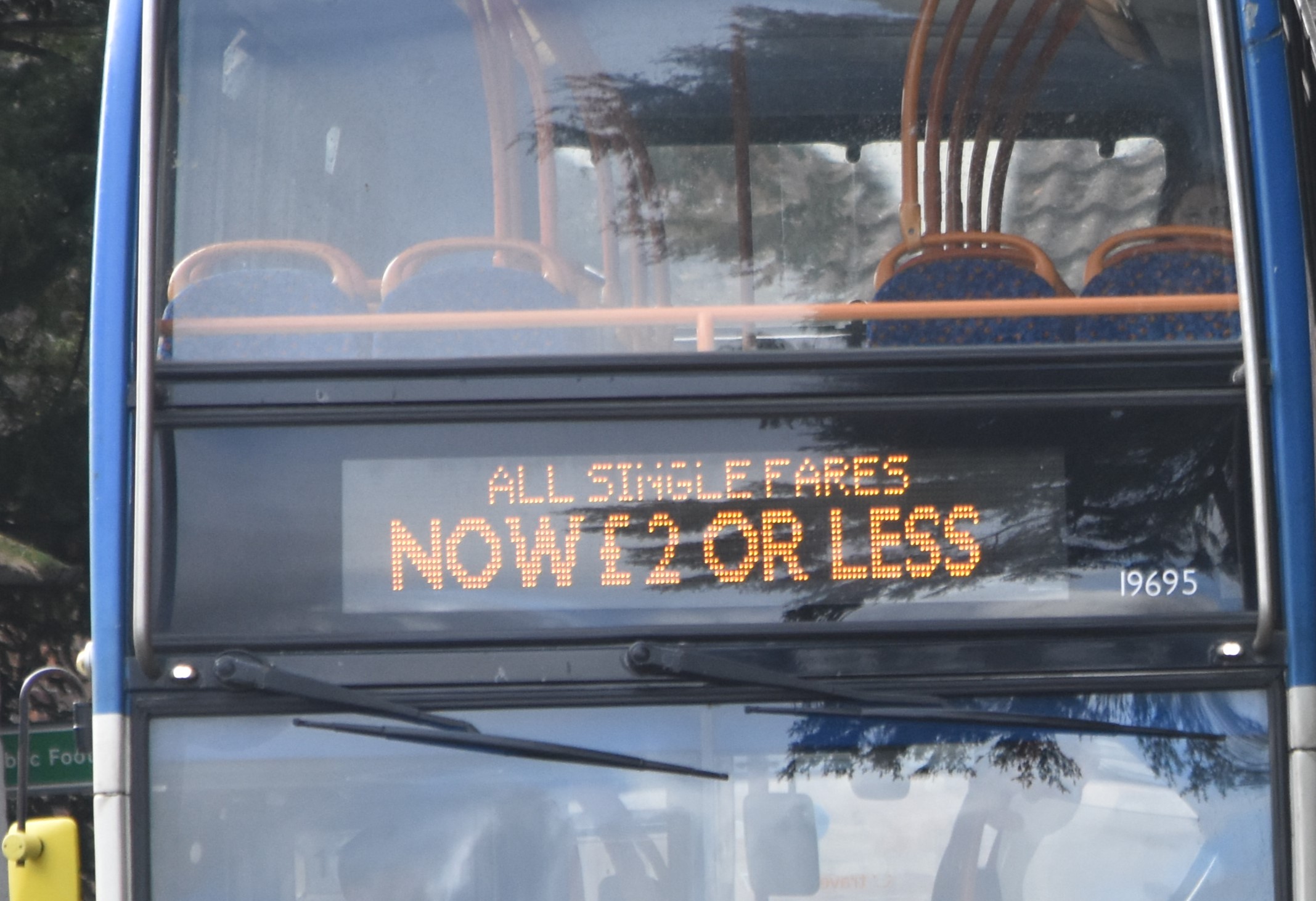Strathclyde Partnership for Transport (SPT) caused a stir in March when it published a report to its board that recommended a start to bus franchising work in the region. Political momentum behind that has grown, and franchising is set to be in a final draft of the Strathclyde Regional Bus Strategy for public consultation.
Any franchising rollout is a long way away. Moreover, a draft letter from SPT Chair Cllr Stephen Dornan to the Scottish Government acknowledges that its funding needs are beyond current affordability for SPT and constituent local authorities.
“Significant” additional money will thus be required if franchising is ultimately chosen, Cllr Dornan says. SPT estimates that as being between £40 million and £85 million per year. McGill’s Buses claims it would be more like £400 million.
The financial position of both SPT and its constituents, and the Scottish Government, is part of why the passenger transport authority’s approach to its advocacy of bus franchising is viewed as “reckless” by Joan Aitken.
She is a former Traffic Commissioner for Scotland and was Chair of the Glasgow City Region Bus Partnership Steering Group until earlier in 2024. Ms Aitken resigned the latter position because of how the franchising announcement was handled by SPT.
Financial pressures at heart of SPT bus franchising concern
“Before the report went before SPT’s board, the huge pressure on public finances in Scotland was well known,” she explains. The priority measures-based Bus Partnership Fund (BPF) had been frozen by the Scottish Government, and budgets for education and homelessness and to build homes had been hit.
Publication of the report caused McGill’s to withdraw from the Glasgow City Region Bus Partnership. Its views on franchising are well known.

Ms Aitken is not anti-franchising. “I never have been,” she says. “To put franchising in a toolkit for bus service improvement is a totally legitimate thing for the Scottish Government to do.”
But public finances in Scotland must be remembered. She notes that the Transport (Scotland) Act 2019 contains a range of options as part of that toolkit. With fiscal challenges in mind, there is a risk that any franchising scheme proposal “could end in tears,” with a worst-case of fewer buses and worse services than at present due to uncertainties in planning.
Worthy of criticism is what she sees as the current local “grandstanding” on franchising. “I fear that the political has more weight than the practical,” Ms Aitken continues. Creating false public expectation is a further risk of that talk, as is a danger of ignoring other viable reform options. Among those is the statutory Bus Service Improvement Partnership mechanism. It may deliver similar benefit with less cost and more agility.
SPT is keeping that on the table, but franchising is clearly in favour. Ms Aitken’s reading of the report from March was of a downplaying of what could be achieved via partnership, she adds.
‘Bus priority measures are the key to better services ‘
A further concern for stakeholders in SPT’s report is its view of delivering what is termed a “bus friendly” roads network. That is cited as something for the longer-term. “I was horrified to read that because it casts aside the need to be active now and not await SPT’s franchising plans,” says Ms Aitken.
She stresses that priority infrastructure and solving pinch points must be fast-tracked and in place if any regulatory reform is to deliver better bus services. SPT acknowledges that BPF money is critical to improvements in the region, but Ms Aitken goes further.
“I said to Humza Yousaf when he was Transport Minister: ‘You can have nationalised buses, franchised buses, commercial buses or electric buses, but none will meet the public demand for reliability and punctuality unless bus operating conditions are right.’ That means bus priority, passenger needs front and centre, and other actions such as clamping down on poor parking.”

BPF pause notwithstanding, she believes the Scottish Government understands that better than some local politicians. The Glasgow City Region Bus Partnership made progress by educating elected representatives and transport officers and breaking down silos between council officers and operators. “Great ideas emerged from the partnership working, with real progress on parking enforcement and road space management.”
Bus Priority Fund resumption is imperative
A bid for a significant amount of BPF money for the Glasgow City Region was made before the scheme’s suspension. Had it been forthcoming, significant improvement to bus services would have already been delivered. Priority measures, common branding and greater staff resource were among plans. While pausing of the BPF was disappointing, the Partnership has still made progress elsewhere.
Ms Aitken hopes that will continue ahead of any ultimate franchised future in Strathclyde. She notes how knowledgeable and motivated staff from operators and local authorities continue to work towards positive change. “Partnership is not just the public purse giving everything. Operators match in kind.”
Nevertheless, the “reckless” approach from SPT in March has been damaging. Fallout has the potential to slow the Partnership’s fostering of improvements. The question of funding remains unanswered – as SPT acknowledges – and appropriate operating conditions for buses must be prioritised regardless of the regulatory outcome.
“You cannot wait five or 10 years and then say ‘oh, we have a franchising scheme. Let’s now tackle congestion’. Overall, this is a story of huge frustration,” Ms Aitken says. It remains to be seen when, or if, the BPF returns. Without it, or other funding for big-ticket priority measures, the odds are stacked against meaningful improvement, whether that is via franchising or otherwise, she concludes.



























